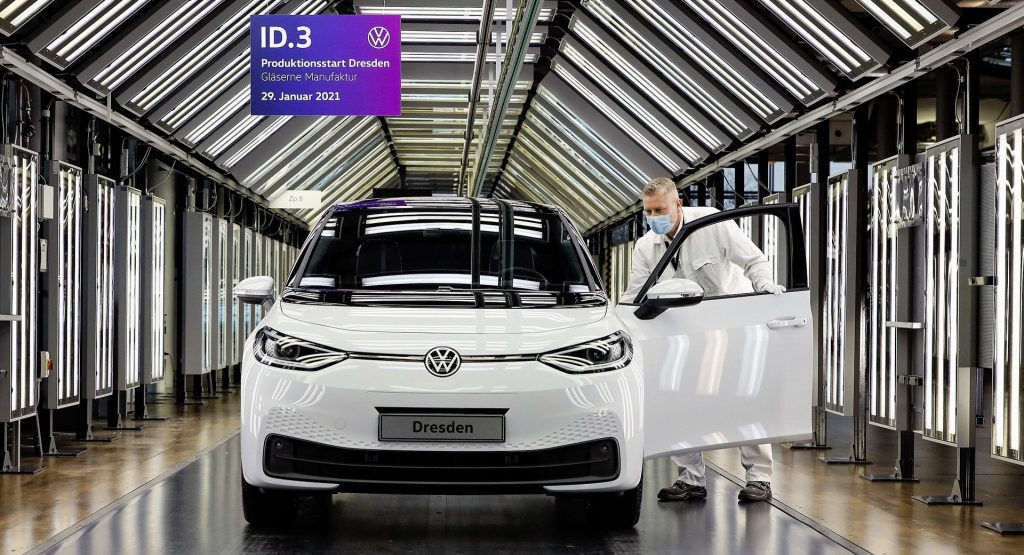Volkswagen Group’s 2021 output was slashed to the tune of 2.3 million vehicles last year due to the crippling effects of the chip crisis, the company has admitted.
The multi-brand automaker whose stable includes VW, Audi, Skoda, and Seat sold 8.6 million vehicles in 2021. That was a 6.3 percent drop versus 2020, which was badly affected by the COVID-19 pandemic, but it was down 2.3 million on output achieved in 2019, that last year before the virus hit. To give that figure some kind of context, BMW’s entire production run for 2021 totaled 2.21 million units (2.5 million across the BMW Group).
The silver lining to Wolfsburg’s cloud is that sales revenue actually climbed to €250.9 billion ($275.6 bn), while operating profit jumped to €19.3 billion ($21.2 bn), pushing overall earnings before tax up almost 73 percent to €20.1bn ($22.1 bn). That impressive feat was down to higher transaction prices and a better spread of products helped by the introduction of electric models across the group’s portfolio.
Related: China’s Worst Covid Outbreak In Two Years Is Causing Trouble For Toyota And VW
Although VW was comprehensively outplayed by Tesla in the U.S., it fared more successfully in Europe where its 25 percent share of the EV market makes it the biggest fish in the pond. Total sales of electric vehicles across the globe almost doubled in 2021, accounting for 452,900 vehicles, and you can bet that number will make another giant leap in 2022.
But maybe not as big a leap as Volkswagen had hoped at the beginning of the year when it looked like both the COVID-19 pandemic and semiconductor crisis might fade into the rearview mirror. Russia’s invasion of Ukraine has thrown a spanner in the works and could cause several problems, including the loss of sales in Russia, the loss of production capacity in Russian plants, and supply bottlenecks for parts.
Volkswagen Group CEO, Herbert Diess, predicted last week that a prolonged war in Ukraine could be “very much worse” for the German and European economies than the COVID-19 pandemic and semiconductor shortage. Interruptions to global supply chains “could lead to huge price increases, scarcity of energy, and inflation,” Diess told the Financial Times.






